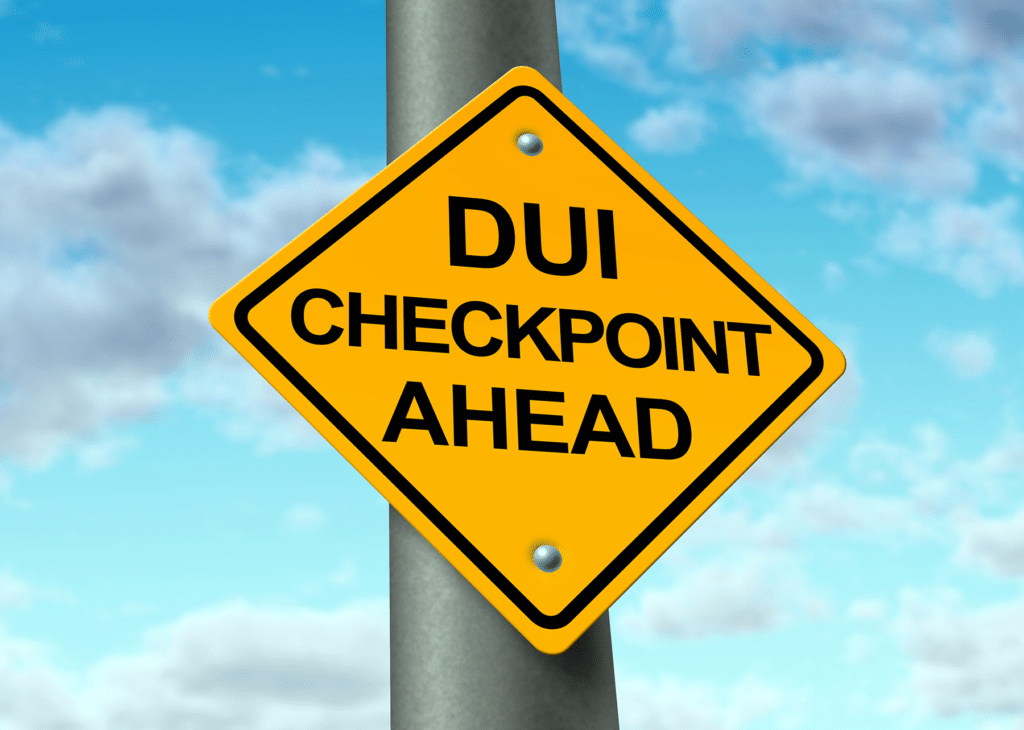You’re driving home from a night out with friends, feeling a little tired but otherwise fine. Suddenly, you see a line of vehicles and flashing lights in the distance–it’s a DUI checkpoint. Your heart begins to race as you wonder what to do. How should you respond to the officer’s requests? Should you submit to sobriety tests? Will you be arrested or let go?
If this scenario sounds familiar, you’re not alone. DUI checkpoints can be intimidating and confusing for anyone who hasn’t experienced one before, and it is important understand your rights and how to protect yourself should you encounter one. In this blog, we’ll provide a comprehensive overview of DUI checkpoints in Tennessee, including how they work, what to expect if you’re stopped at one, and what to do if you’re charged with a DUI after passing through a checkpoint.
What Is A DUI Checkpoint?
DUI checkpoints, also known as sobriety checkpoints or roadblocks, are used to catch drivers who are operating a vehicle while under the influence of alcohol or drugs. They are a common tactic used by law enforcement to deter drunk driving and reduce the number of alcohol-related crashes and fatalities on the roads. DUI checkpoints are typically set up in high-traffic areas on holidays and weekends when the risk of drunk driving is known to be higher.
How Do DUI Checkpoints Work In Tennessee?
If you’re stopped at a DUI checkpoint in Tennessee, you can expect the following:
- The officer will ask for your driver’s license, registration, and insurance information. It’s important to have these documents readily available and to present them to the officer in a calm and respectful manner.
- The officer may ask you if you have been drinking and may request that you perform field sobriety tests. These tests, which may include the horizontal gaze nystagmus test, the walk and turn test, and the one leg stand test, are used to assess your level of intoxication.
- If the officer suspects intoxication, they may ask you to take a chemical test, such as a breathalyzer, to measure your blood alcohol concentration (BAC).
- If the officer determines that you are under the influence of alcohol or drugs, they may arrest you and charge you with a DUI. If this happens, it’s important to remain calm and to cooperate with the officer.
It’s important to remember that you have the right to remain silent and the right to an attorney. If you’re asked to perform field sobriety tests or submit to a chemical test, you have the right to refuse. However, it’s important to note that refusing a chemical test can result in the suspension of your driver’s license, even if you’re not ultimately charged with a DUI.
Can You Turn Around If You See A DUI Checkpoint?
In Tennessee, it is legal to turn around or take a different route to avoid a DUI checkpoint as long as you do so in a safe and legal manner. This means that if you see a DUI checkpoint ahead and you don’t want to go through it, you can legally turn around or take a different route to avoid it as long as you do so in a way that does not violate any traffic laws.
It’s important to note, however, that even though it’s legal to turn around or take a different route to avoid a DUI checkpoint in Tennessee, it’s still a good idea to exercise caution and avoid any suspicious or illegal behavior. If an officer sees you turning around or taking a different route in an attempt to avoid a checkpoint and suspects that you’re doing so to avoid a DUI check, they may still pull you over and check for signs of intoxication.
Can Police Search Your Vehicle At a DUI Checkpoint?
Police are allowed to search your vehicle at a DUI checkpoint if they have probable cause to believe that there is evidence of a crime inside the vehicle. Probable cause means that there is a reasonable belief, based on factual evidence, that a crime has been or is being committed.
There are several ways in which an officer may obtain probable cause to search your vehicle at a DUI checkpoint. For example, if the officer smells alcohol or drugs coming from your vehicle, or if they see alcohol or drugs in plain view inside the vehicle, they may have probable cause to search the vehicle.
It’s important to note that even if the officer does not have probable cause to search your vehicle, they may still ask you to consent to a search. In this case, you have the right to refuse the search. If you do consent to the search, it’s important to be aware that anything the officer finds during the search can be used against you in court.
Contact An Experienced Tennessee DUI Attorney
If you are charged with a DUI after passing through a DUI checkpoint in Tennessee, it’s important to contact a DUI attorney right away. The attorneys at Barnes and Fersten are experienced in DUI defense and will work to ensure that your rights are protected throughout the legal process. Contact us today to schedule your free initial consultation and start building a strong defense against your DUI charges.
Attorney At Law, Managing Partner
Brandon D. Fersten is an esteemed Knoxville attorney practicing DUI, criminal defense, and juvenile law. Known for his empathetic approach and commitment to his clients, he brings a record of favorable case outcomes including dismissals and not guilty verdicts at jury trials resulting in Brandon being recognized as one of the “Top 40 Under 40” in Criminal Defense, U.S. News’ Best Lawyers: “Ones to Watch,” and Super Lawyers’ “Rising Stars”. Brandon’s professional accolades, combined with his passion for justice, position him as a reliable criminal defense advocate in the East Tennessee legal landscape.




